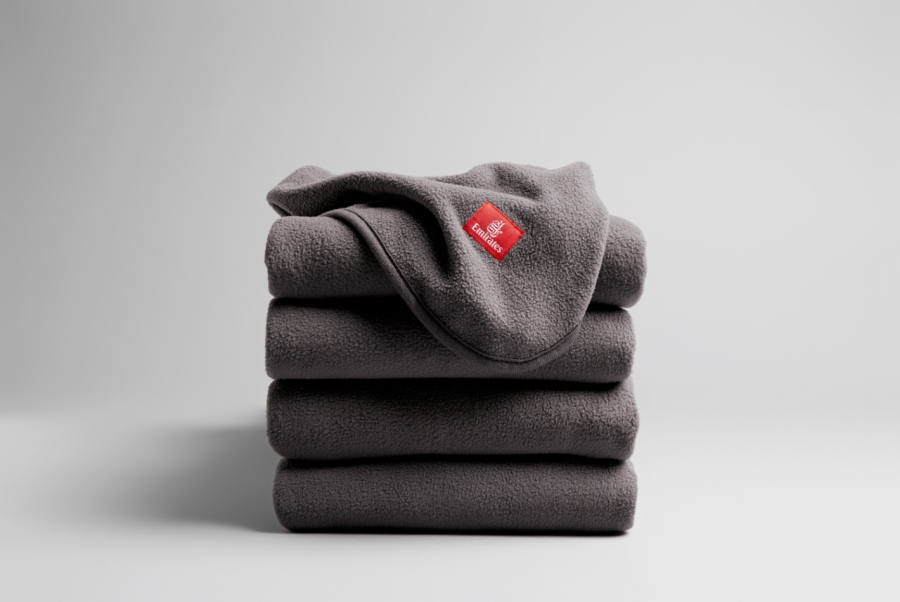
While our previous article asked airlines to think differently, the global landscape continues to evolve at a speed that few can keep up with. You might have noticed we’ve not been updating recently, but considering the current landscape, you can’t blame us. At TheDesignAir, we focus on positivity in the airline industry, and we’re a firm believer that the industry can improve the world by connecting people and broadening horizons. It’s devastating to see the global impact Covid-19 is having.

As an ex-commercial pilot with a degree in airline business management, I’ve taken great interest in the working mechanism behind airlines, which involves millions of global jobs. There have been many impacts on the industry over the past few decades, from terrorism to volcanic ash and global pandemics, yet none have had an impact in the same way that this Coronavirus has had. While many individuals feel like we can’t make a huge difference, I hope this platform can help airlines think differently, making an impact on the places they call home.

While most airlines are currently looking on how to reduce costs, save jobs and trim schedules; governments have stepped up to the mark, the UK – our home – included. In the seemingly never-ending restrictions to travel, now is the time for airlines to step up and show what its brand stands for. Below is a list of solutions to this pandemic we believe will not only be a humanitarian solution, but build loyalty and love for the airlines that so far have just connected us from A to B but not to the communities they serve. We just hope some airlines, and governments will take note.
Utilise crew, deliver food, help communities and front-line staff.
For the sake of example, let’s use the UK government, who is faced by panic-buying public, having to front most of the salary bills in the UK and airlines are asking for critical bail-out options to save their industry, unfairly on the pointy end of the situation.

There’s now a glut of crew, mechanics, head office staff and utilities that are being underused due to the dramatic reduction in flights. And it’s not just the airlines, who are the lifeblood to a seemingly never-ending chain of other suppliers, reliant on the usually daily service that the airlines provide.

Right now, the focus (quite rightly) is placed on the health services, who are putting their lives on the line to help the communities they serve. Due to the confinement we find ourselves in as a human race, it’s hard for us as individuals to provide the support we feel they need – in fact, the best thing we can do is stay at home.

But this means that medical staff and their families are put under greater strain by the panic buying, leaving shelves bare after long shifts and children who need care and support. Let the airlines help. Why can’t an airline use crew to man a phone line, acting as a call centre to those who need help the most. Airlines should provide meals to these individuals. Bear with us as we explain… An medical worker needs meals for their family. They call an airline’s hotline, who mobilises their engineering vehicles, currently parked to deliver airline meals to local communities.

This means staff are being used and delivering care to those who need it. It keeps people in jobs, protecting supply chains, and takes pressure off the government to supply basic requirements to their constituents, if only temporarily. Airline meals – which cost just a few dollars – are prepared in sterile environments, taking the pressure and focus off supermarkets, who are the only businesses to truly benefit right now from this pandemic.

Imagine receiving a meal which can be easily heated in the oven delivered to your doorstep by a team of crew who want to do the right thing for their community and who are eager to work. These actions would protect the workers further down the supply chain (even to the farmers growing the produce), and is a small price to pay for a government backing. This is one way of airlines getting money – short of selling part of their valuable business back to the government.
Amenities companies can do more too
Whether it’s an amenity kit or even just a blanket, the amenities industry is also effected. These amenity kits could be helping those in greatest need, supplying the elderly and those at greatest risk with necessary products. Simple changes to the usual offering, such as face masks instead of eye masks and sanitiser instead of perfume samples, could provide people with things they need.

Airlines, working closely with the big fashion brands that put their name to these kits, could be delivering unused kits to retirement homes, hospitals and those on the front line. Now is for these brands to lend more than just their name, but also deliver to the communities. We’ve already seen LVMH convert part of their business to produce sanitiser, as they currently are for the likes of Air France.

Airline blankets are constantly recycled, but they don’t last forever, and airlines need to keep their supplies stocked up. Instead of just shutting down this supply chain, and putting jobs at risk, why not provide excess blankets to the health services, who more than ever need supplies? Again, airlines working with their governments to provide support where it’s needed most.
IFE is more than just movies and magazines, it’s now Isolation Entertainment

Right now, as people are self isolating and forced to remain home – like myself, who is starting to feel the emotional effect this can have on humans who aren’t designed for isolation. Why not allow passengers who had booked flights and have seen their plans cancelled or curtailed see a little glimmer of light. Tt doesn’t take much for airlines to work with the studios and their inflight magazine agencies to supply the content that they were going to enjoy on the plane – for free as a way of saying thank you for their loyalty.

After all, those who booked flights can enjoy the content they were going to consume on the flight, supplied via a download link or secure website. Most airline’s magazines are actually already free to download, including those found on Ink‘s (the world’s largest travel media company) portfolio site.
It’s about building loyalty, community and trust
This isn’t the end of the ideas. There’s utilising airline miles to help those in need or engineering teams to help build parts for ventilators. For those airlines still flying, why not offer seats to medical teams who need to help people in other countries. We’ve already seen American convert passenger aircraft to freighters to support international efforts.
While it’s ignorant to say there isn’t a PR-able opportunity to be had, this is about using existing supply chains who have currently been curtailed, staff who are trained to offer customer service and vehicles currently sat on aprons being under utilised. Sure there are a few complications to simply rolling these ideas out, but they aren’t unachievable, they will build brand loyalty and actually do the right thing for humanity at a time which is filled with uncertainty and compassion. They might not be ideas that can ‘fly’ but they should encourage airlines to see what they can do right now outside of their comfort zone. Let’s throw out the rule book and make a difference. Governments and airlines, step up to the mark and pay it forward – because if you can – this can only benefit you in the future.

